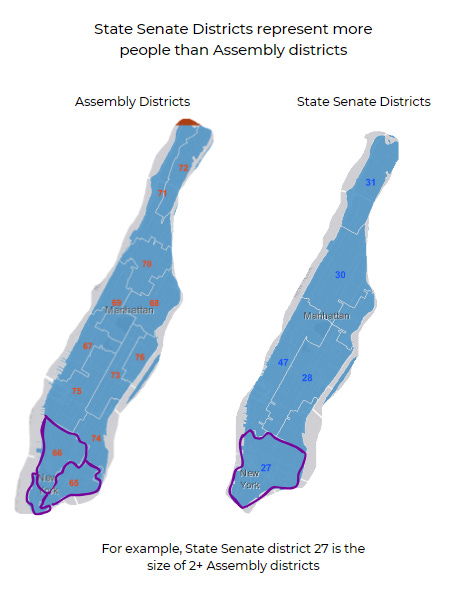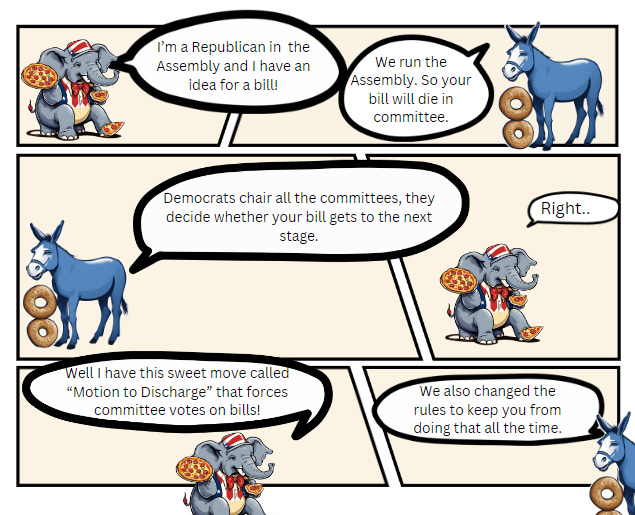NYC Politics 101: State Legislators (Assembly and Senate)
Because there’s more than just President on your 2024 ballot.
Pop quiz: do you know the name of your State Assemblyperson? Probably not.
Here’s the thing: regular people only have so much mental space for politics. Like maybe 1% of their mental space. And most of the time, that 1% is filled up by national politics: Biden, Trump, the Supreme Court, maaaaybe Congress…when they’re trying to shut down the government.
I’m a huge advocate for checking out of national politics and checking in to state and local instead. State and local politicians are more nimble, have just as much crazy drama, and they affect our day-to-day lives even more. Plus, there are fewer voters per district. So just a few people switching their 1% political brainspace over can really change the narrative on an issue.
These NYC Politics 101 posts are meant to cover some basics about state-level politics. I’m starting with state because that’s most of what’s on NYC’s ballot for 2024!
What to know about State Legislators
They’re on the ballot for 2024.
These people only serve 2 year terms, how exhausting for them! And not great for us as constituents either that they have to spend so much time campaigning 🫤. No term limits though.
The Basics
There’s two houses in the State Legislature– the Assembly and the Senate. There are 150 seats in the Assembly and 63 in the Senate.
The biggest difference between Assembly and Senate is how the district lines are drawn. Since there’s fewer Senate districts, each Senate district represents more constituents. For example, Manhattan has 7 state senators and 13 Assemblymembers.
Together, both houses and the Executive branch (the governor) make laws and set the budget for the state. State-level leaders have a huge impact on New York City residents’ day-to-day lives. They’re allocating a huge budget (New York state’s FY 2024 budget is $229 billion), which means making value judgments on where those dollars should be spent. And they’re passing policy on not only statewide stuff like minimum wage, but also things that just affect New York City: from housing density to the number of charter schools.
Not all state legislators are created equal.
Some have more power. You have more power if:
You’re a Democrat. You have a supermajority in each house! Yay!
You are Carl Heastie and Andrea Stewart-Cousins. They’re Assembly Speaker and state Senate Majority Leader. That means they set the legislative agenda and decide who’s on which committees.
You have more fundraising ability and/or more seniority. Then you’re more likely to get a sweet committee appointment or even chair a committee.
Some committees are just better than others.
If you chair an important committee, you get to decide whether a bill moves forward in the process or not. The most important committees are:
Rules Committees — They determine the calendar order of bills. Rules committees are always chaired by the Senate majority leader and Assembly speaker.
Finance and Ways and Means Committees — Any bill that requires expenditure of state funds has to make it through Ways and Means first.
Labor Committees — Unions are some of the most powerful influences in Albany, so labor issues like minimum wage, workforce safety and unemployment insurance are high priority.
When your party runs the Rules Committee, you make the rules.
Want to learn more?
Here’s my top recs:








Sachi does due diligence, gets right to the point, and her writing has just the right amount of pzazz!